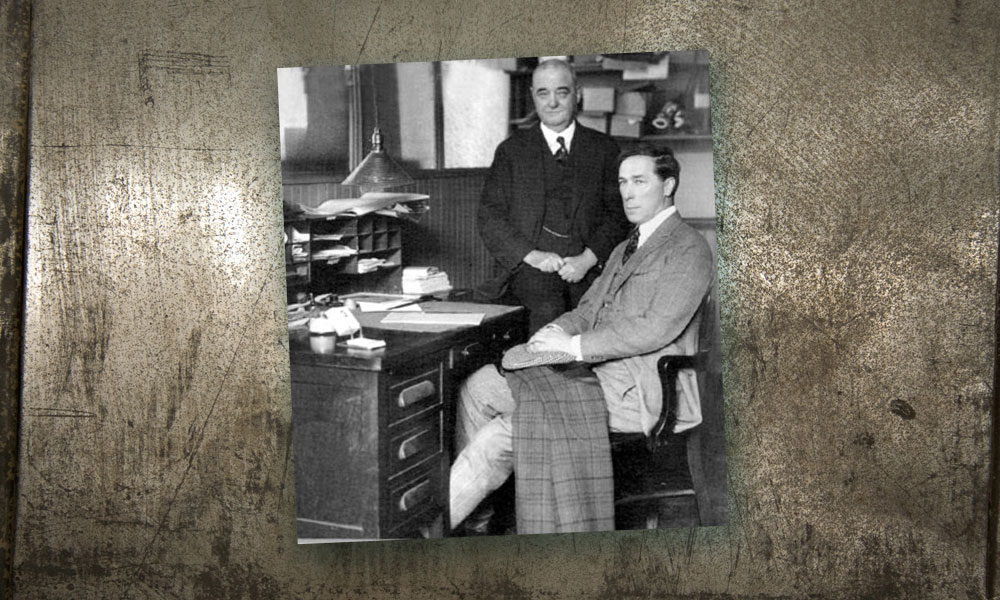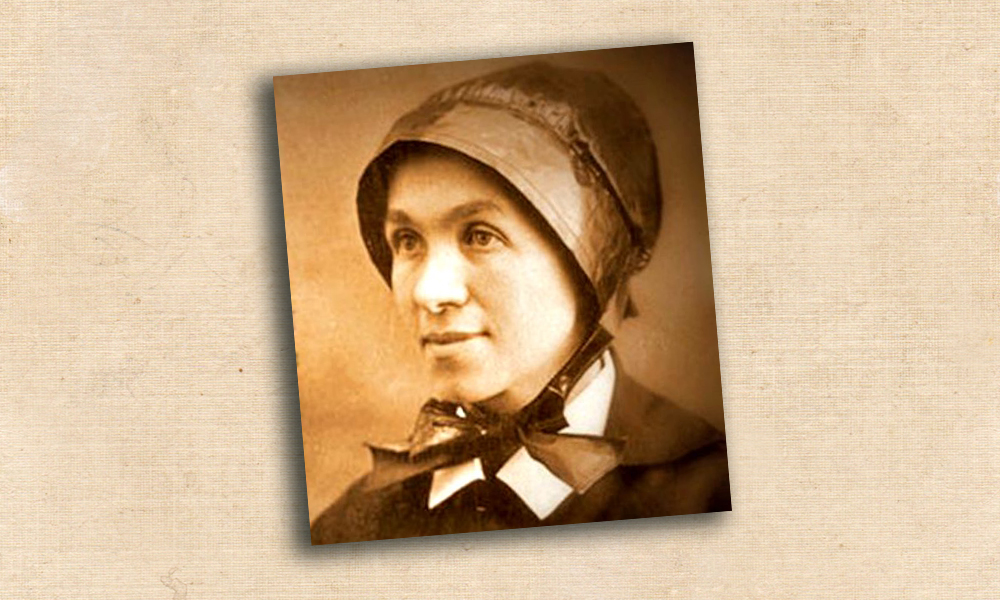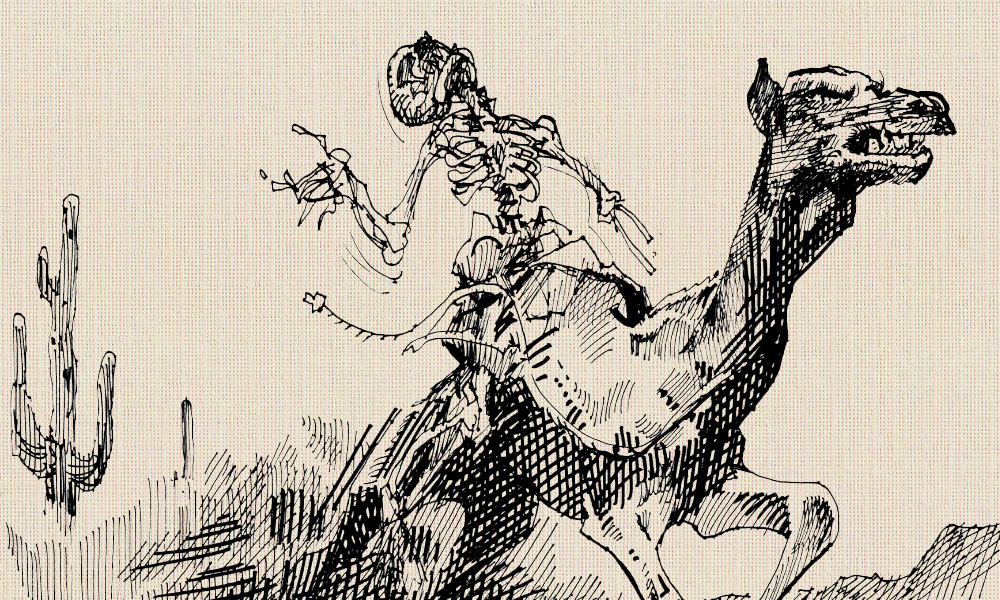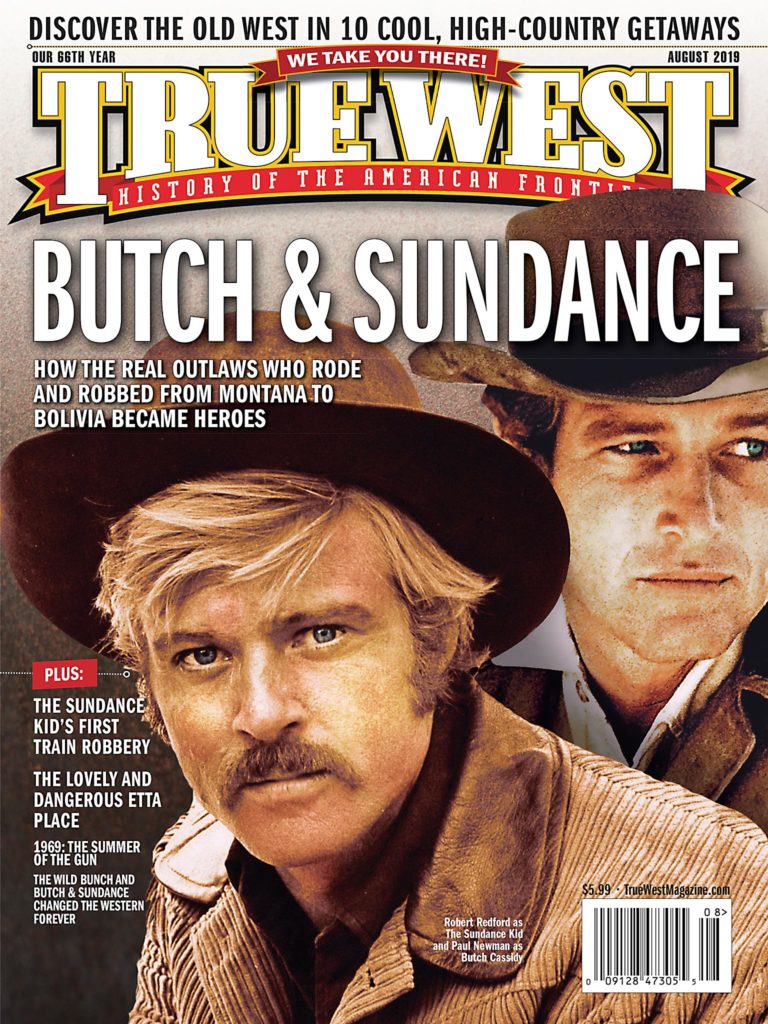
— Copyrighted by Paul D. Ernst —
The Sundance Kid, whose real name was Harry Alonzo Longabaugh, is inextricably linked to the better-known Butch Cassidy, most likely as a result of the 1969 Western movie Butch Cassidy and the Sundance Kid, as well as subsequent print and film treatments. The two outlaws are often represented as boon companions participating in bank and train robberies together throughout their outlaw careers in both the United States and South America. Much of this is not true.
The Sundance Kid and Cassidy were indeed involved in a number of holdups and did in fact travel to South America together along with a woman, Etta Place. The truth is that the Sundance Kid was a relative latecomer in Cassidy’s outlaw career. Most of the time, Cassidy’s more or less constant companion was Elzy Lay.
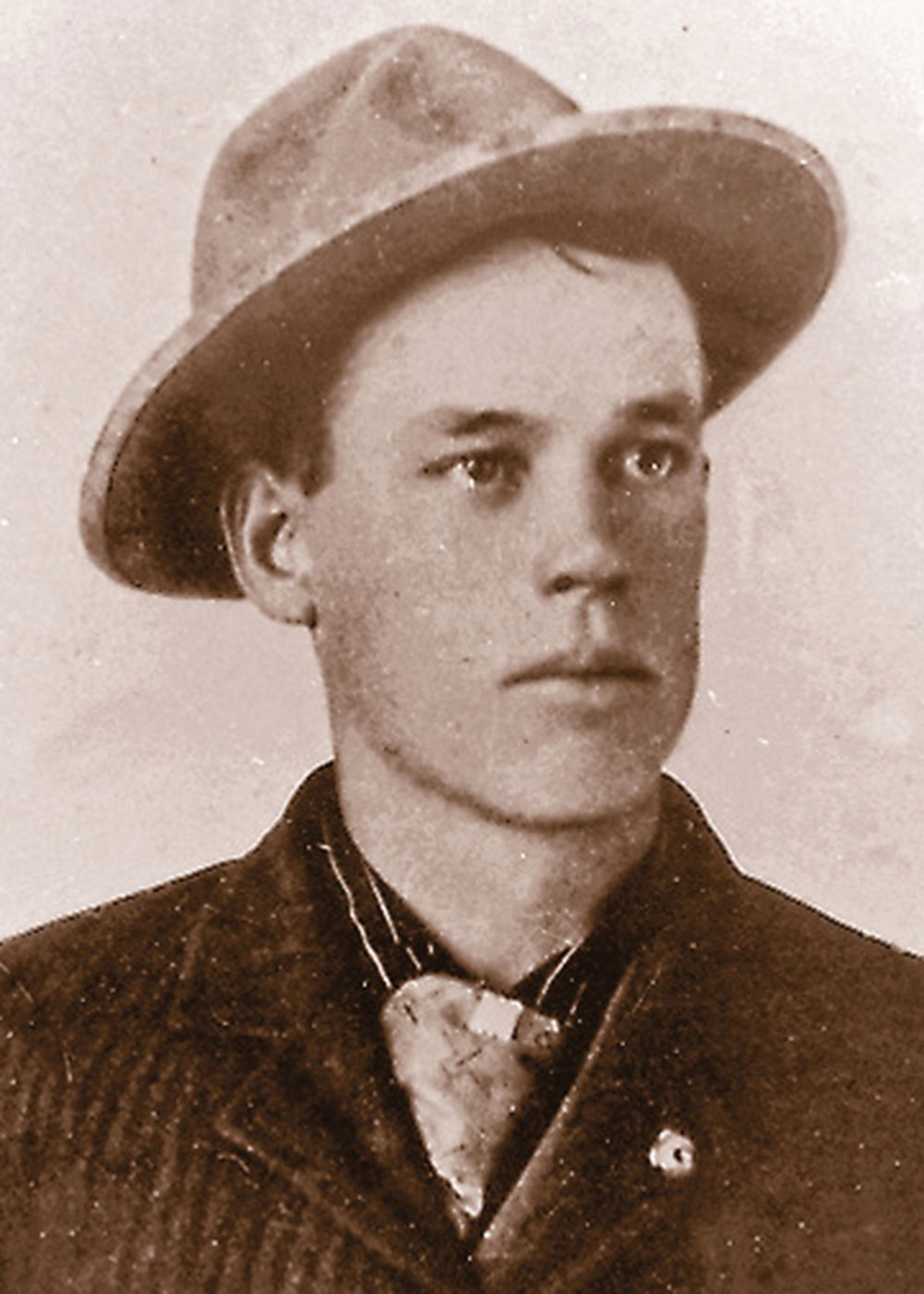
Longabaugh was born near Phoenixville, Pennsylvania, in 1867, the last of five children of Josiah Longabaugh and Annie Place. Phoenixville is located a few miles northwest of Philadelphia. The original spelling of the family surname name was Langenbach.
Most accounts of Harry’s youth portray him as unsettled and unstable. He was particularly close to his sister, Samanna. He often found refuge in reading books. When he was 13 years old, Harry went to live with the Wilmer Ralston family in
West Vincent, Pennsylvania, 10 miles from Phoenixville. Though technically in the employ of Ralston, Harry was little more than an indentured servant. Shortly after turning 14, Harry left the Ralston household and drifted from one job to another.
During his travels, Harry discovered dime novels and purchased them whenever he had any spare change. He was particularly infatuated with the adventures and escapades associated with the desperadoes and outlaws of America’s Wild West. Likely influenced by the novels, Harry purchased a revolver and taught himself to shoot. He eventually became quite skilled with the weapon.
When he was 15, Harry moved to Illinois to live with cousins. The cousins perceived greater opportunities for making a living in the West, so they sold the Illinois farm and moved to Durango, Colorado. Cousin George raised horses and employed Harry to break and train them. Two years later, they all moved to Cortez, Colorado. Harry continued to break horses for his cousin in addition to working on a neighboring ranch. In time, he grew to be a proficient horseman. During this time, Harry encountered men who would eventually play a major role in his life. They included Butch Cassidy, Matt Warner, Dan Parker and others. In 1886, Harry traveled to Montana and secured a job on the N Bar N Ranch near Miles City. He was 19 years old. There he met Wild Bunch member Harvey “Kid Curry” Logan.
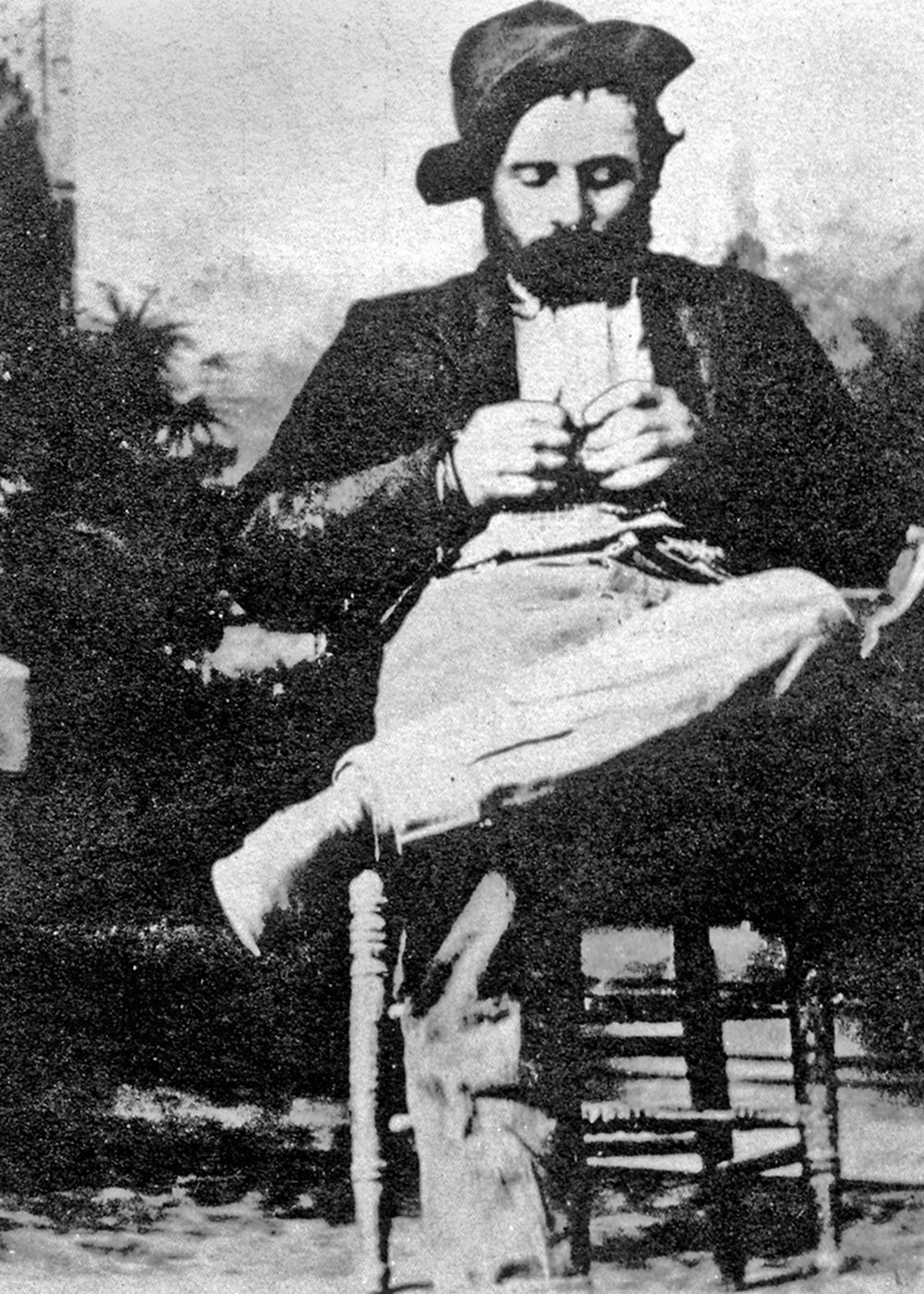
Leaving his job at the N Bar N, Harry traveled to Wyoming in search of work. He arrived at the VVV Ranch near the town of Sundance. The winter of 1886-87 was the worst in the history of the state of Wyoming. As a result, hundreds of head of cattle froze to death, and cowhands were laid off. With no prospects of a job and no money in his pockets, Harry stole a horse and saddle, a pair of chaps and a revolver from two cowhands on February 27, 1887, and fled back to Miles City. Before he could effect a complete escape, the now 20-year-old Longabaugh was overtaken and arrested by Crook County Sheriff James Ryan on April 8. Locked in handcuffs and leg irons, Harry was placed aboard a train to be returned to Sundance. During the journey, he slipped out of his shackles and escaped by leaping from the moving train.
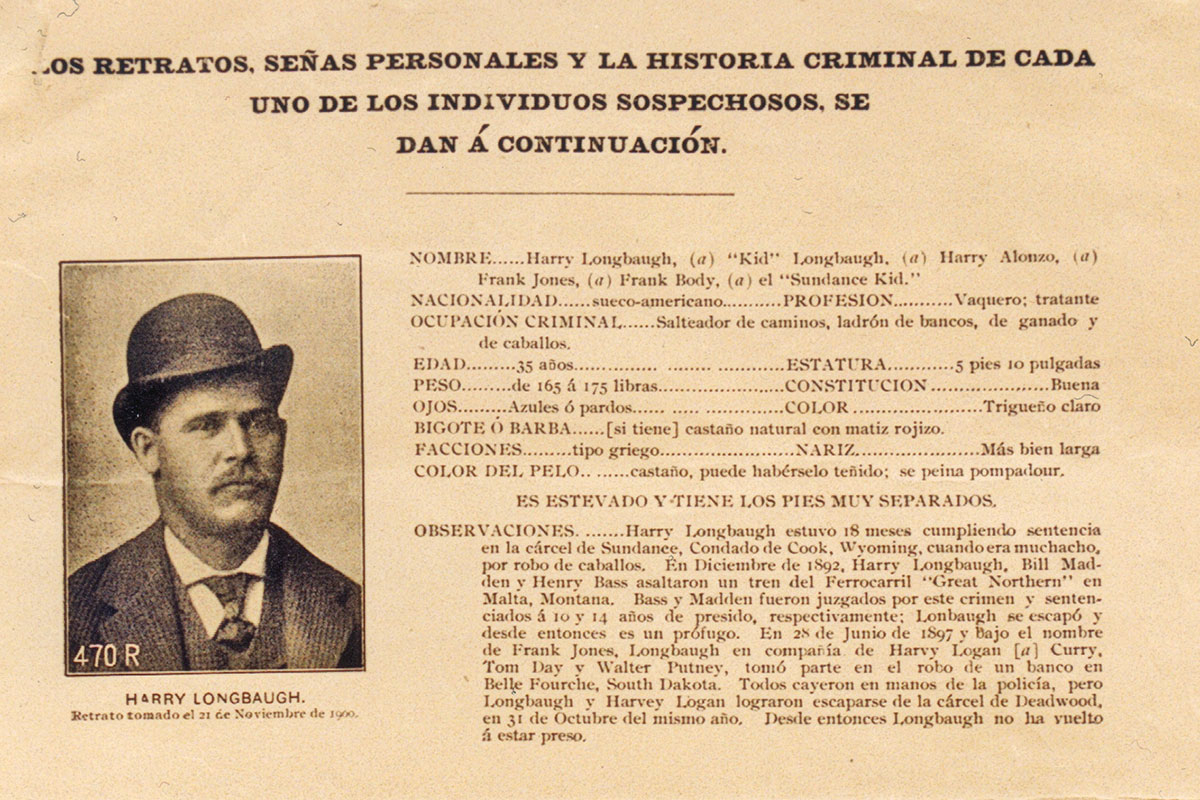
— Library of Congress, Pinkerton Collection —
Oddly, Harry made his way back to Miles City. Along the way, he stole seven horses and sold them in the small town of Benton, Montana. In June, Deputy Sheriff E. K. Davis and Stock Inspector W. Smith located and arrested him. Once again shackled and chained, he was transported to the Sundance jail. In Sundance, he was tried for horse theft, found guilty, and sentenced to 18 months of hard labor. While in jail, according to some writers, Harry acquired the nickname by which he was known for the rest of his life: the Sundance Kid. Others have suggested that a fellow Wild Bunch companion bestowed the nickname on him after he was released from the jail in Sundance when he was 22.
In search of work, Harry traveled to Deadwood, South Dakota, but had little luck in landing a job. Deadwood, a bustling mining town, was filled with saloons and gambling houses, and there, according to writers, Harry learned the finer points of card-playing. There, too, he took up with some outlaws, which resulted in some troubles, one of which saw his friend Bob Minor shot dead by lawmen. Fearing for his own safety, Harry departed Deadwood, traveled to Cortez, Colorado, and returned to working with his cousin George breaking horses.

After several weeks of working on the ranch, Harry took up with Butch
Cassidy, Matt Warner and Tom McCarty. Though evidence is hard to come by,
many believe that he was involved in the robbery of the San Miguel Valley Bank in Telluride, Colorado, with Butch Cassidy. On his own again, Harry returned to Montana and worked on ranches for a time. He also ventured into Alberta, Canada, where he broke and trained horses for the H2 Ranch near Fort Macleod. Some researchers are convinced he also found employment for a time with the Calgary and Edmonton Railway.
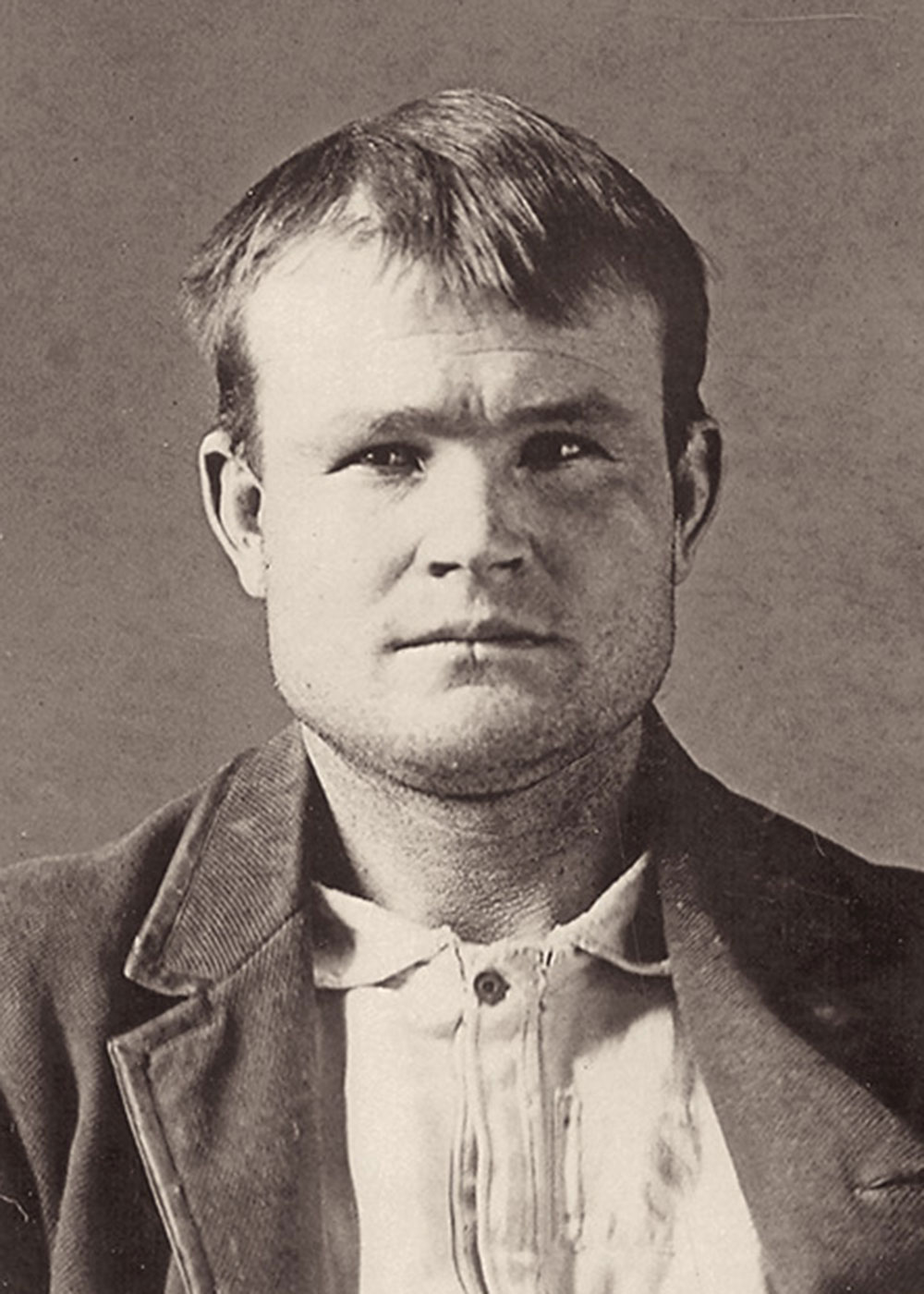
By Autumn 1892, Harry had returned to Montana. Broke and with no work prospects, he decided to rob a train. Recruiting two men to assist him—Harry Bass and Bill Madden—Harry set his sights on the Great Northern No. 23 train, with the robbery to take place near the small Montana town of Malta.
In 1892, Malta, Montana, was a somewhat remote and isolated stop for the Great Northern Railroad along its run from St. Paul, Minnesota, to Butte, Montana.
It served primarily as a cattle-shipping depot. Malta, less than 45 miles from
the Canadian border, was granted its name during an application for a post office in 1890. When asked to come up with a name for what, at the time was little more than a rail siding, one of the residents spun a globe, and when it stopped, he closed his eyes and stabbed his finger at a location. It selected the island of Malta in the Mediterranean Sea.
Malta could be considered an ideal setting for a train robbery in 1892. It was far from any town of significant size, and its population was so small that there was little need for lawmen. Perhaps this is why three men were intent on robbing the Great Northern Railroad No. 23 train at that station.
After dropping off a small amount of freight and mail at the small Malta station on November 27 (one account states that the robbery took place on September 29), the engineer signaled departure and a moment later pulled away. As the train was picking up speed, none of the town’s few residents were about. Suddenly, three men ran out of hiding and jumped aboard the blind between the tender and the express car. They were later identified as Harry Bass, Bill Madden and Harry Longabaugh, the Sundance Kid. About a half mile from the station, the engineer was surprised when he heard a command from behind. He turned to find himself staring at a masked man who was pointing a revolver at him. Without wasting words, the intruder ordered the engineer to stop the train.
When the train finally pulled to a halt, the masked stranger instructed the engineer and fireman to climb out of the cab and lead the way back to the express car, where they united with the other two robbers. One of the bandits knocked on the door of the express car and told the messenger inside to open up. At first the messenger, Jerry Hauert, was inclined to resist, but the menacing tone of the outlaw discouraged him. A moment later he slid the door open, and the robber climbed inside, soon followed by the others. Once in the car, one of the outlaws told Hauert that they had no intention of harming him and that were only interested in any valuables that might reside within.
When they spotted the local safe, the robbers ordered Hauert to open it. When he did, the outlaws were discouraged to find only $20. (One report states that the bandits took two checks totaling $53.08, along with two packages valued at less than $11.) A moment later, they found the express safe and once again commanded Hauert to open it. The frightened messenger explained that he was unable to do so, that the safe could only be opened by express company agents stationed at St. Paul and Butte. Only they knew the combination, Hauert said.
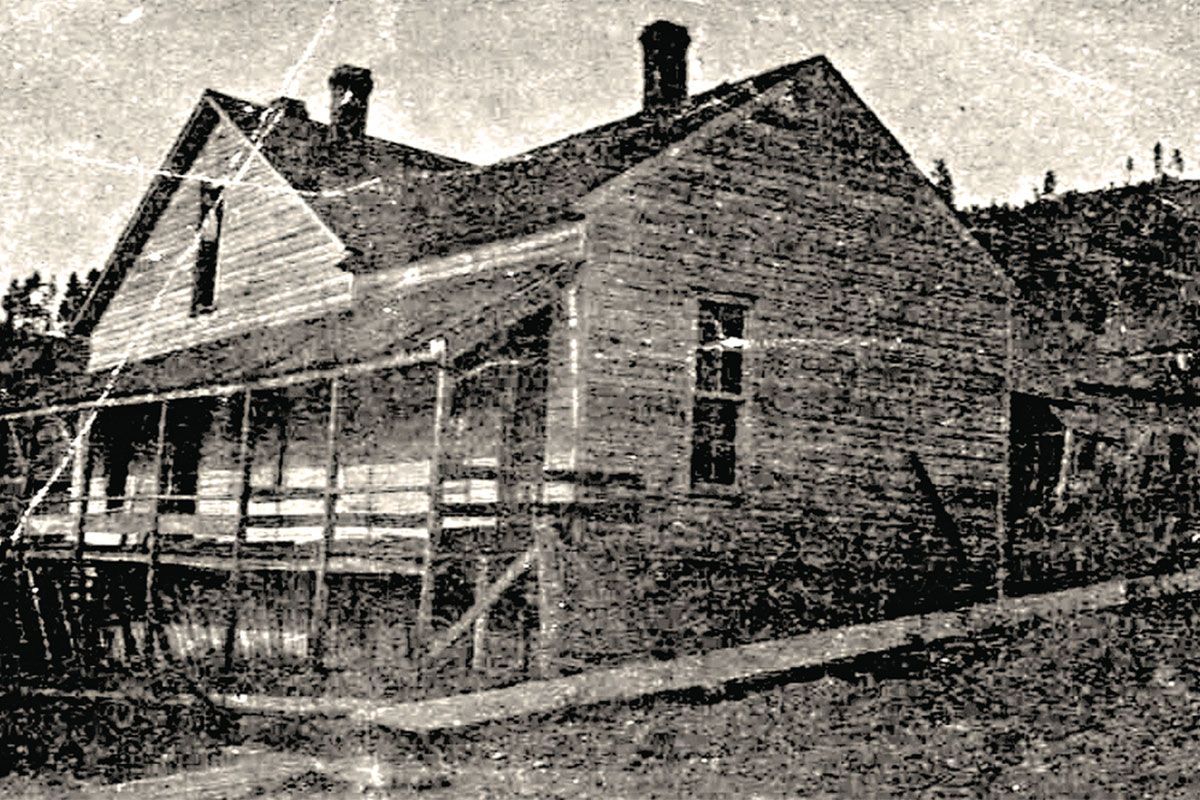
After rummaging through some of the packages in the express car and finding nothing of value, the robbers, discouraged by the small yield given their effort and risk, told the engineer and fireman to return to the locomotive. During the holdup, the masks of the outlaws kept falling away from their faces, and the messenger and engineer got good looks at them. Apparently deciding not to rob the passengers in the trailing coaches, the robbers jumped from the express car and ran off into the dark. The train proceeded to the next station, where the conductor telegraphed law enforcement authorities and explained the particulars of the robbery. The outlaws, as it turned out, returned to Malta.
Great Northern Railroad executive J.A. Mayer immediately offered a reward of $500 for the capture of each of the outlaws. The governor of Montana agreed to match that amount. The rewards amounted to considerably more than the robbers had stolen, but the railroad company was intent on sending a message that it would not tolerate train robbery.
Sheriff B.F. O’Neal of Choteau County organized and led a posse to search for the robbers. The group arrived in Malta on December 1 and decided to stop at the local tavern for a few drinks before setting out for the scene of the incident. In the same saloon were three strangers seated at a table near the back of the building: Harry Bass, Bill Madden and Harry Alonzo Longabaugh. On spotting the lawmen, the three outlaws brought forth revolvers and rifles, threatened the posse members, and chased them away.
The train robbers decided it was time to leave town and began making preparations to do so. Unfortunately, they did not leave soon enough. Dogged railroad detective W. Ed Black located and arrested Bass and a companion named William Hunt a short time later. Around the same time, Sheriff O’Neal, along with Cascade County Sheriff Joseph Hamilton, arrested Harry Longabaugh as he was boarding an eastbound train preparing to depart Malta. Madden could not be located.
Longabaugh and Bass, along with Hunt and another prisoner, were taken to Helena, where the conductor of the Great Northern No. 23 train identified them. Longabaugh gave his name as J.E. Ebaugh and stated that he sometimes used the alias J.E. Thibado. The prisoners were bound over for trial. Bail was set at $300 for each man, but neither of them had enough money. Two days later, Bill Madden was captured, arrested and transported to Fort Benton, where he was placed in jail to await his trail. While in jail and under questioning, Madden admitted to his part in the train robbery and identified his partners as a man named Bass and another named “Loungbo.”
The well-attended trial for the train robbers was held in Great Falls, Montana. The recommendation was made that “the prisoners be discharged for the reason that nothing has been adduced to show that they were guilty of the charge proffered against them.” The case presented by the prosecution deteriorated, and the prisoners were released. As Bass was leaving the courthouse, he was immediately rearrested on charges of burglary, based on statements made by Madden. Harry Longabaugh, the Sundance Kid, was allowed to leave town. Because he was using aliases, the prosecution was unaware that he was the “Loungbo” identified by Madden.
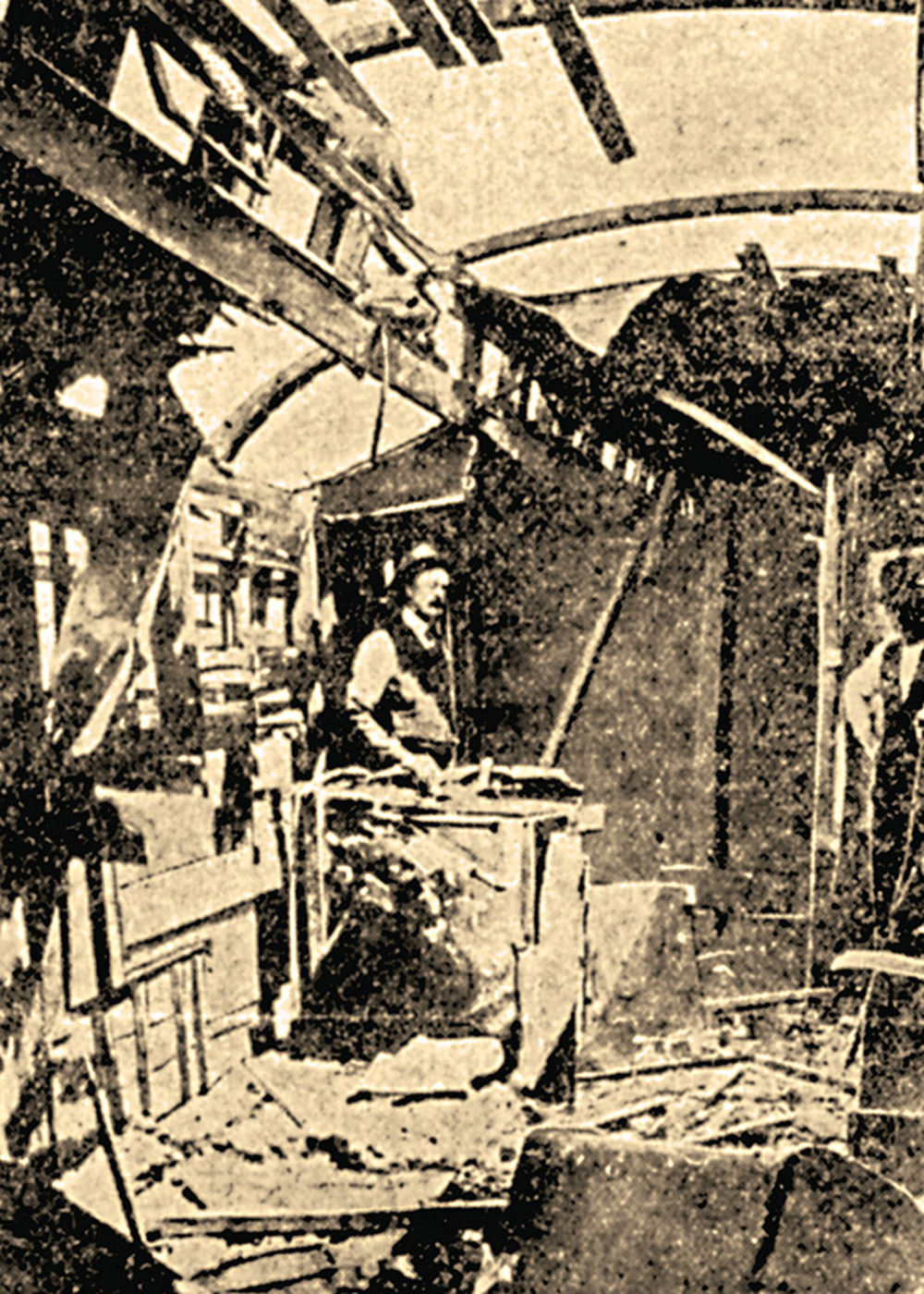
Bass and Madden were retried and convicted under the odd and rare charge of “burglary in the night time” in connection with the Malta train robbery. On Christmas morning 1892, both were admitted to the state penitentiary in Deer Lodge, Montana. Bass eventually received a pardon in January 1897 and, after leaving the prison, disappeared from the historical record. Madden was released in January 1898. He moved to Oregon City, Oregon, where he lived out the remainder of his life.
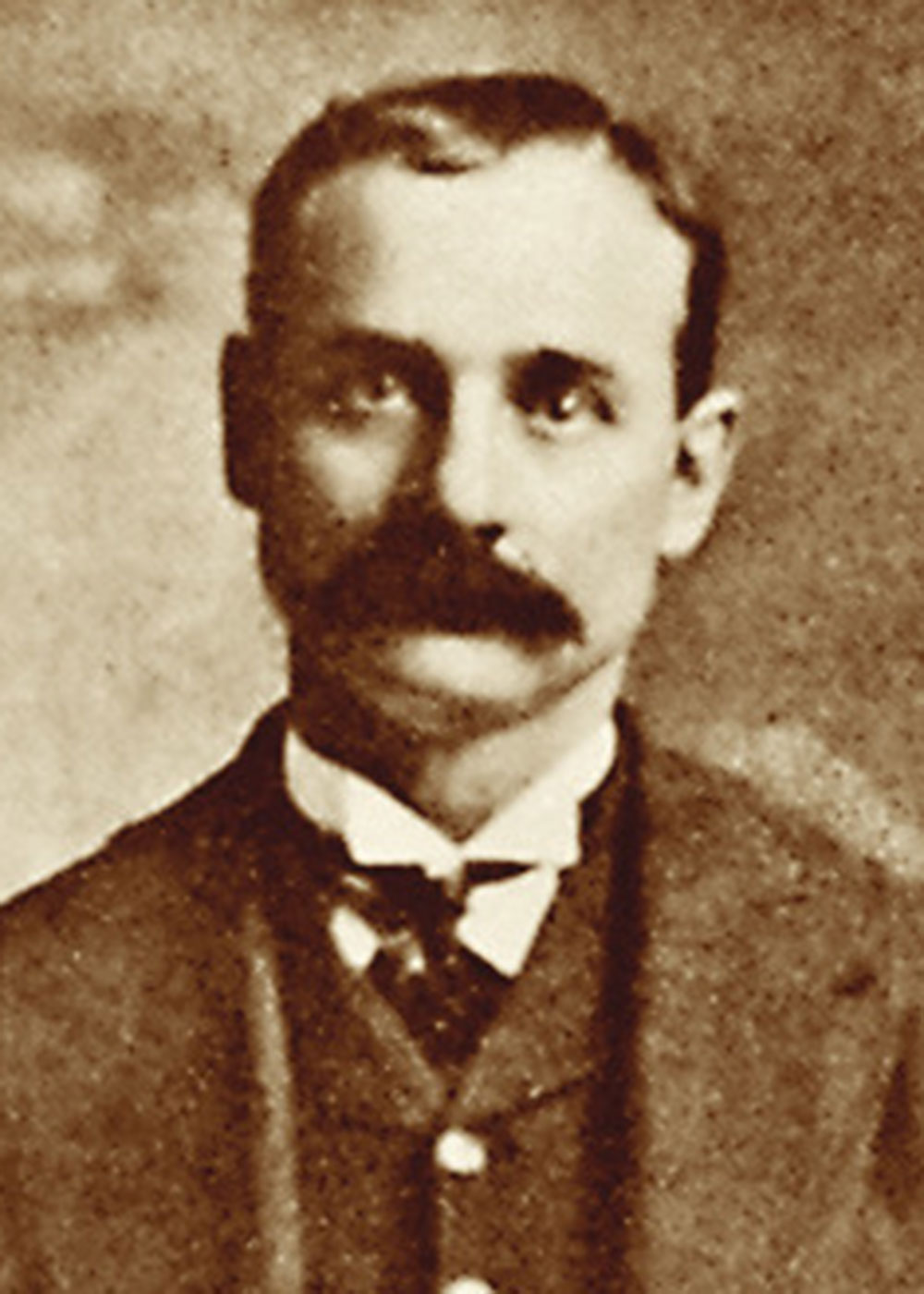
Harry Longabaugh was never re-arrested for a rail heist and never faced trial for the Malta train robbery. A few weeks following his release, he found work on a ranch near Culberson, Montana. Among the ranch hands he worked with was Harvey “Kid Curry” Logan. In time, the two men became friends and served as members of the Wild Bunch, noted train robbers led by Butch Cassidy.
W.C. Jameson is the award-winning author of more than 100 books. A resident of Llano, Texas, he is the best-selling treasure author in America. “A Legend is Born” is excerpted from Jameson’s recently published Rocky Mountain Train Robberies: True Stories of Notorious Bandits and Infamous Escapades (TwoDot, 2019).

